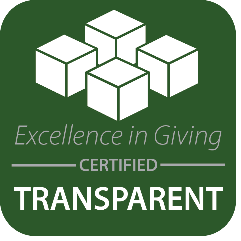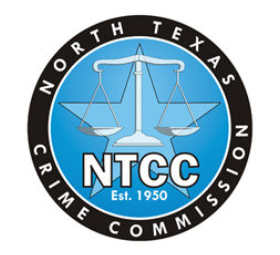The fight against human trafficking is an uphill battle, which depends on fully-trained law officers that can detect their networks and prevent victims from being harmed.
Human trafficking is a crime that happens in the hidden corners of society with its most vulnerable members: children, women, illegal immigrants, the homeless, people that suffer from addiction, the poor.
If you want to know what you can do to prevent this crime, read below:
The Fight Against Human Trafficking
Human trafficking is a nationwide problem. And although people believe its source is international, most human trafficking in the US is perpetuated by Americans — targeting American children.
At least 100,000 victims are kept as sex slaves in the US, and every 2.5 hours, a new child is added to that tally. Considering that 96% of victims are female and raped at least 5 times daily, you can see the gravity of this issue.
But to aid the fight against human trafficking, it’s important not only to prevent it from targeting vulnerable kids and teenagers, but also dismantle its networks.
At DeliverFund, we provide law enforcement with the software and tools necessary to track down traffickers and their networks. After all, since they use the internet to scale their operations,we can use their tools against them.
And although we previously mentioned statistics on children, human trafficking in the US also targets adults (mostly women), who are vulnerable. This includes the homeless, illegal immigrants, people in poverty, and those who suffer from addiction.
DeliverFund’s team includes former CIA, NSA, Special Operations, and law enforcement officials in its ranks. We have the expertise to detect and dismantle these criminal networks — and we teach local police across the US how to do the same.
Learn more about how DeliverFund is combatting human trafficking.
Call the National Human Trafficking Hotline
If you suspect that anybody you know is a victim of human trafficking — or even a human trafficker — you should call the free national human trafficking hotline:
1-888-373-7888
Is it an emergency? Then instead of calling the hotline, you must call 911. They’ll respond more swiftly to a human trafficking emergency that needs to be addressed NOW.
When Should I Call the Hotline?
You should call the hotline whenever you suspect human trafficking activity. You can provide an anonymous tip through this hotline, which will be of great help to law enforcement officers.
You can also provide a tip through the following channels:
- ICE
- FBI
- If you suspect visa/passport fraud for human trafficking, send an email to [email protected]
You can also contact the hotline above to receive more information on human trafficking, as well as technical assistance, and resources.
The National Human Trafficking Hotline is available 24/7 and operated by a non-profit with funding from the Federal government.
The Fight Against Child Trafficking
We already mentioned the numbers of child trafficking above, but we haven’t yet mentioned one of the main ways to prevent it.
Child trafficking is committed mostly by predators who groom children into their sphere of influence.
Unlike common belief, rarely will a trafficker resort to kidnapping — in this digital age, most of the victims are targeted through grooming on social media and chat rooms.
The Signs of Grooming by a Child Trafficker
Child traffickers will go after kids that are vulnerable: kids that are suffering from low confidence or are in a household crippled by poverty.
These criminals will provide a false sense of security to the victim and make them feel comfortable before reeling them into slavery.
Once the victim is in their grasp, they’ll maintain control over them by withholding food or water or even getting them addicted to drugs — and then make the victim dependent on the trafficker to access drugs.
Barnardo’s, a British non-profit that protects vulnerable children and teenagers, created this 4 stage model for detecting grooming:
#1 The targeting stage
- Observation of the target
- Selection of the victim
- Befriending: being nice, giving gifts, etc.
- Compliments
- Creating trust
- Sharing information about the target with other predators
#2 Friendship-forming stage
- Makes the victim feel special
- Rewards victim with gifts
- Spends time with the victim
- Keeps secrets
- Demonstrates that they are available: “I’m here for you”
- Says phrases like “Nobody understands you like I do”
- Becomes their best friend
- Tests out “accidental” physical contact
- Offers protection
#3 Loving relationship stage
- Becomes their boyfriend/girlfriend
- Establishes a sexual relationship
- Lowers inhibitions of the victim with methods such as pornography
- Engages them in activities that are illegal for minors (going to clubs, alcohol, drug use)
- Inconsistent behavior: i.e. lifts up their spirits but then pushes them away
#4 Abusive relationship stage
- The “love” factor is gone from the sexual relationship
- Withdrawal of “love/friendship” from the victim
- Reinforces that the victim is dependent on them, such as saying that they are “damaged”
- Isolates the victim from family and friends
- Manipulation, such as saying that the victim “owes them”
- Threats
- Sexual assault
- Forcing the victim to have sex with others (rape)
- Giving the victim drugs
- Making the victim feel guilty or shameful
To learn more, read the signs of human trafficking. If you see a child being sexually exploited online, contact the National Center of Missing and Exploited Children’s tipline at cybertipline.org. You can also report abuse on social media by using the report feature in the platform itself.
Finding Consensus in Polarized Times
In the past few years, the US has been living in polarized, partisan times. Debates are heated, and reaching a consensus between both sides seems hard or even possible.
Yet, we at DeliverFund believe that human trafficking is not, and should not be, a partisan issue.
It is a problem that affects vulnerable members of our society in blue and red states alike. And it’s a problem that requires the unity of policymakers and law enforcement to be tackled.
Human trafficking (like most forms of trafficking) is highly adaptable and changes its operations constantly to avoid detection by the authorities. And that just means we need to be quicker than them.
But to be quicker, our law enforcement officers need to be trained. And they can only be trained by experts on counter human trafficking with your generous donations to DeliverFund.









